Ace of Cups
A conversation with Amber Tamblyn on writing, being a child actress, killing your darlings, Brittany Murphy, business daddies, Xanax, mentorship, the election, and our shared eternal quest for external validation
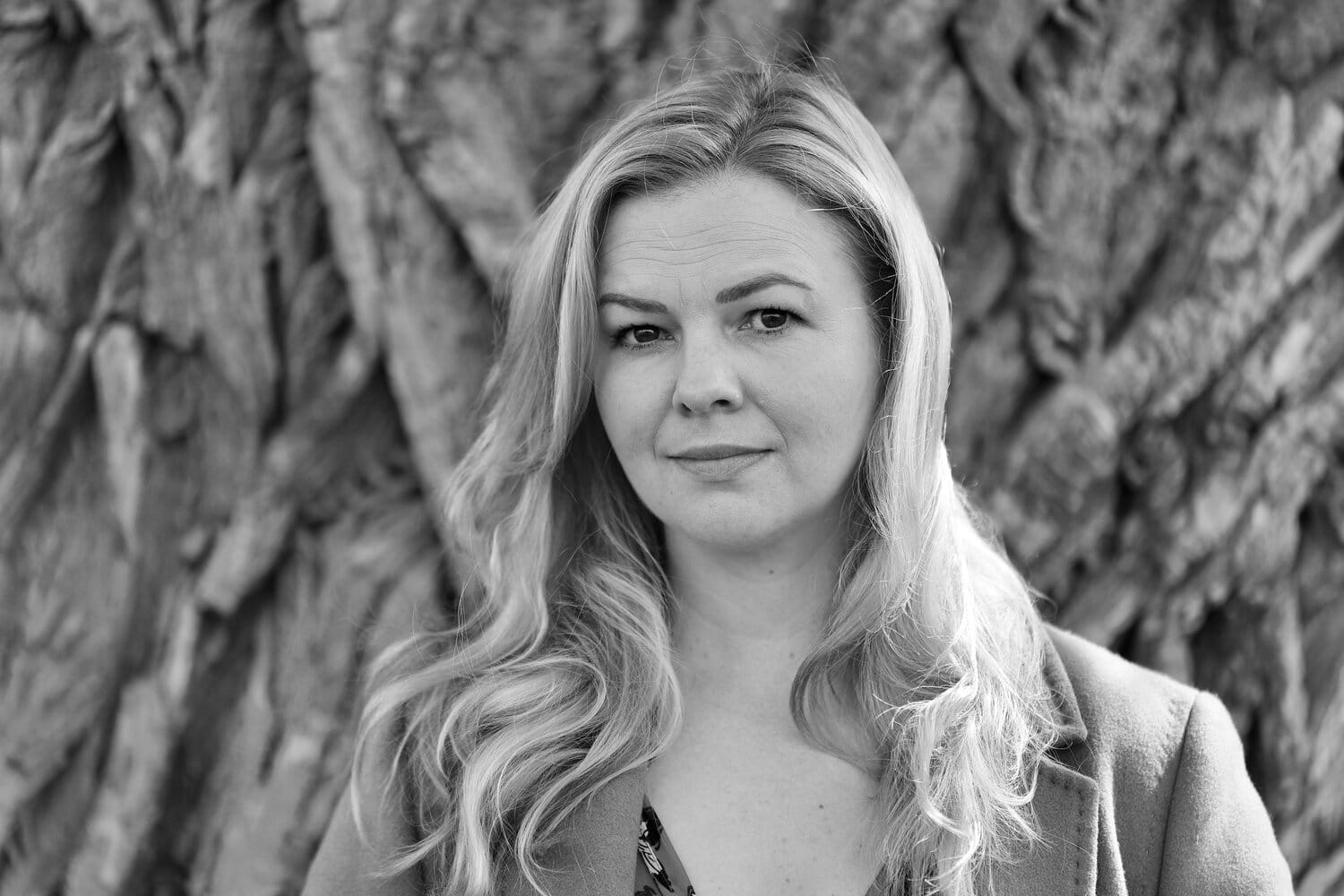
Ace of Cups Playlist
Friends, we have entered a new era of Witch’s Mark. We’ve completed our journey through the Major Arcana, and now we turn to the minors. The Major Arcana represents big transitions and momentous life shifts, while the Minor Arcana speaks more to our day to day lives. There are four suits in the Minor Arcana — cups, wands, swords, and pentacles — each suit represents a different aspect of human life.
Cups are about relationships, love, creativity, and emotions, and are associated with the element of water. Like water, our emotions are expansive, fluid, spreading out in all directions, not easily contained. My emotions are also leaky, torrential, and often leave me feeling soggy.
Generally, aces contain all of the elements of the suit, and represent beginnings. If you draw an ace in a Tarot reading, the answer to whatever question you’ve asked is an enthusiastic yes. The Ace of Cups can indicate that a new important person or idea is about to enter your life. When it comes to art, I see the ace of cups as the moment an idea moves from the subconscious to the conscious mind.
For the Ace of Cups, I talked with my brilliant friend, writer, director, poet, novelist, activist, and actress, Amber Tamblyn. There's a lot to say about Amber beyond what she's known for: She’s got a filthy sense of humor, excellent boobs, plans incredible parties, collects extremely interesting people, and once convinced me to swim at sunrise (in spite of my irrational fear of sharks, who EVERYONE KNOWS feed at sunrise).
Amber and I met working on Y: The Last Man, but we became fast friends (and essentially sister wives, because we podded our children together during Covid). We share the bizarre experience of growing up as child actors, and have similar neurosis because of it. She’s also the person who helped me get over my phobia of being photographed in a bathing suit (because she insists on doing full photo shoots of me whenever I’m wearing one).
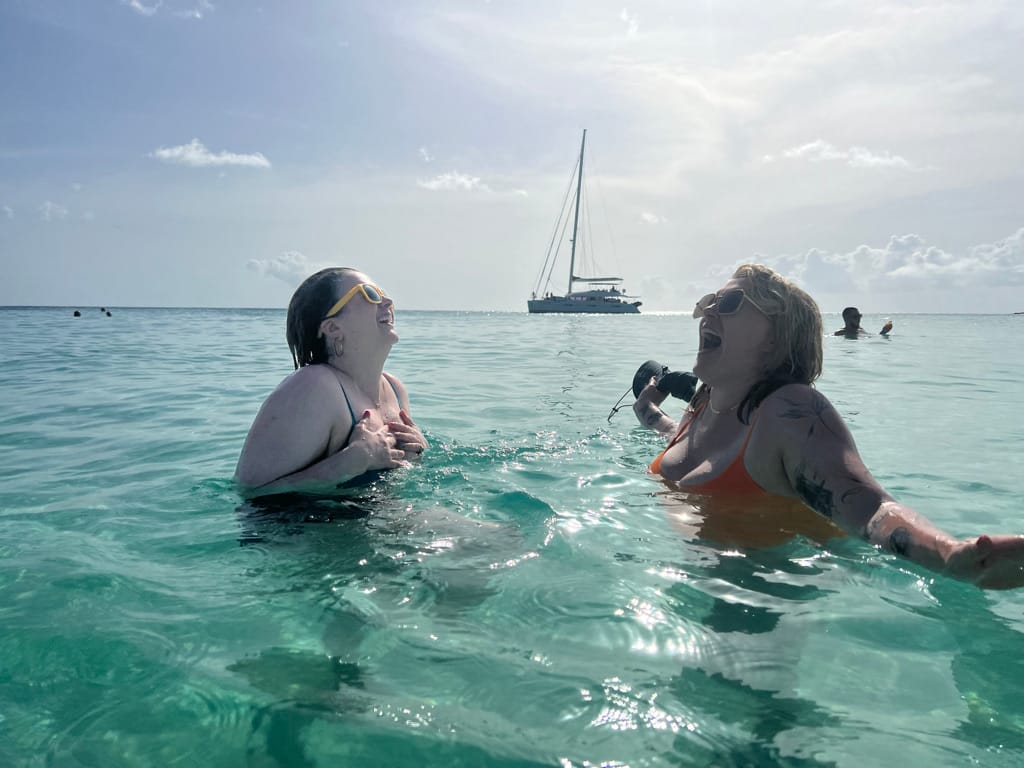
Amber is extremely scared of spiders, and my husband once bought her an enormous Australian taxidermy bird-eating spider “as a gift.” When I asked him how much this "gift" cost, he said, "Don't worry about it."
Amber recently had a beautiful poem published in The New Yorker (we talk about it in our conversation below), and she’s working on a new novel. She’s in a place of creative beginnings, the nascent stage of writing where you’re getting acquainted with your idea. My friend is a deeply feeling person, a woman who is in touch with her emotional life, who listens to her intuition and allows it to guide her, and so, she was the perfect person to talk to about creative beginnings. I love her a lot, and I'm sure you will too.
This conversation has been condensed and edited for clarity. Enjoy!
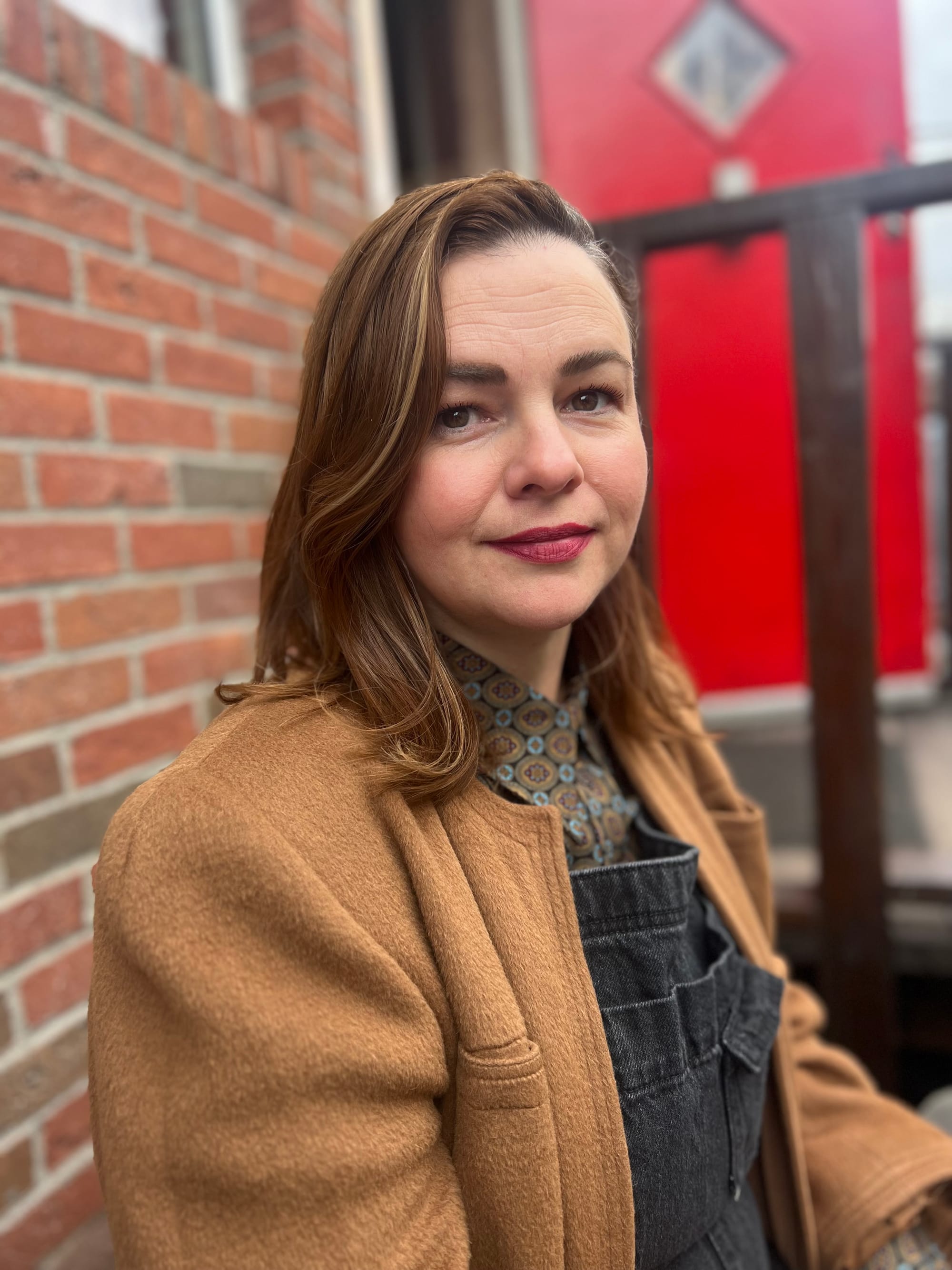
Amber Tamblyn: Ask me any questions you want. I’m just gonna read while you…
(Amber holds up the most recent copy of The New Yorker where her poem “This Living” is featured in a two-page spread).
Eliza Clark: So fucking cool.
Amber: It's so crazy.
Eliza: Have you felt like the most accomplished writer in the history of the world all week?
Amber: I actually had a full on therapy session today about the never-ending work of needing validation, y’know, being a child actor needing validation. You know what this is like.
Eliza: I do.
Amber: I’ve been in therapy since I was probably 9 years old on and off, more on than off. My previous therapist, Evan, who changed my life, told me that I just needed to make peace with it. This is my life’s work. There's no one on this earth that's like “I'm so great, I have no issues. There's nothing that keeps coming back to me to haunt me or drive me crazy, or make me feel bad about myself.” He told me, “Once you make peace with that, it's like having old scar tissue that once in a while hurts when you, you know, move in the wrong way, or the weather is too humid, or too cold.” So anyway, I think about that need for external validation more now as my life's work. Sometimes it flares up, sometimes it feels like a particularly strong muscle. And so, of course, a wonderful moment like this poem coming out really triggered a lot of needing to be validated, needing to hear that it was good, or that I was worthy of being in these pages. I don't know if it’s imposter syndrome, cause I know I'm not an imposter—
Eliza: I feel that. When you're a child actor, it's hard to know if something is good unless somebody tells you that it is. It sort of isn’t real unless somebody tells you it is. That's the particular sticky wicket of being a professional child.
Amber: Yeah. So it's been a great week. It has also been kind of a eye opening week in terms of how I've been spending my time, what I've been putting my energy into. My own newsletter is all virtual. For the most part, it's all online, on a computer. I forgot the power of the tangible when it comes to art. It's also why I love your Tarot cards, which are right here on my little meditation pillow. It’s just been a very nice, necessary reminder of my need to make space for art and the work of making art. There are two projects that are the most important to me right now, that I am wanting to make space for, and then putting all these things in the way of. One is my next book which I'm crazy excited about, and the other is a new script for a feature film that I'm gonna direct. Also, we're in an election year.
Eliza: We are?
Amber: Yeah.
Eliza: Who's running?
Amber: No one interesting.
Eliza: Oh, great!
Amber: Anyway! Seeing my work in the physical in that way, in such a big, important way was just a reminder of: oh, you have to show up for yourself to do that. This is not a given. It's not a gift. It's not gonna magically appear. You have to go make that kind of work.
Eliza: That’s a perfect segue into the Ace of Cups, which is all about ideas and the beginning of a project, when you’re falling in love with a project (or a person!). I have a million questions for you. But I guess my first question is: Do you know where your ideas come from?
Amber: My ideas come usually from a single line of really good poetry that's in my head. It will present itself in a way that sounds like it's the beginning of a poem, and sometimes it is… for instance, in that poem that's in the New Yorker: The first line is “it's going to be a lunar eclipse." But that's not where that poem started. The poem started from a line in my head, which ended up being the second line of the poem, which is “It's going to start as an argument over what’s buried inside the tomb and end in silence over what's discovered beneath it.” I thought of that at some point, and then was like, Wow, that'd be an interesting short story, or maybe I could make a book out of it, or maybe it's a short film. I didn't know what it was, but it was a line that I came up with, and it just then organically based on, you know, what I was feeling at that time, turned into a poem that stayed a poem. For me, it always stems from poetry.
Eliza: You are an actor, a writer, a director. As a writer you write films, television, poetry, novels, essays… how do you figure out what form something's gonna take? And have you ever been writing something as one thing and then realize it's something else?
Amber: Yes, actually the book I'm working on now is my next novel after Any Man, but it started as a different genre of writing at first. And it started with just a title. I started thinking about it back in 2021 when I was doing this extraordinary tv show with an extremely HOT, SMART show creator— you may have heard of it it was called Y: The Last Man.
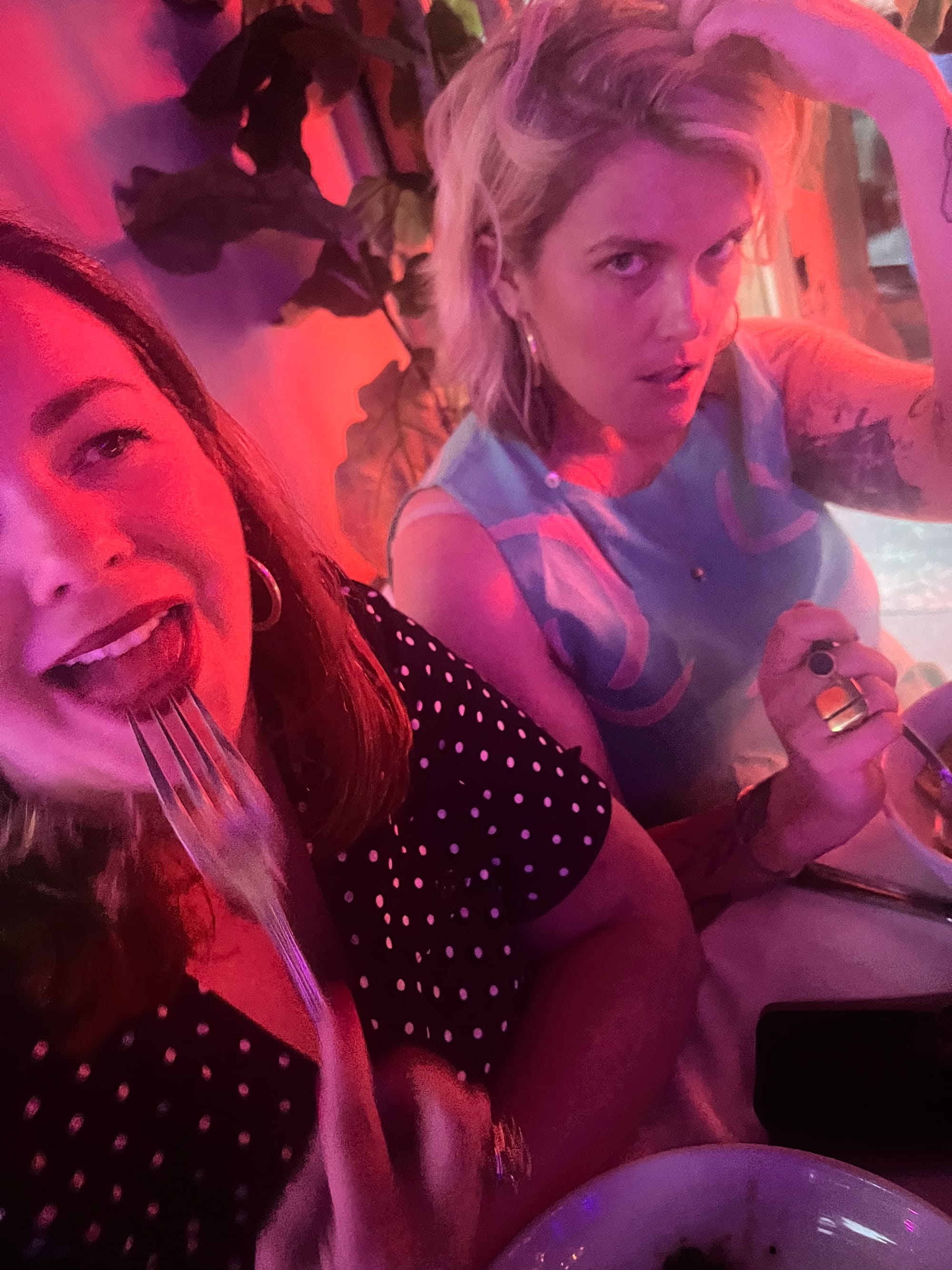
Eliza: I haven't heard of the show, but I did hear the showrunner was hot and smart, so--
Amber: So I was working on this idea there, in the form of a different genre of writing altogether that wasn’t a novel. But then a lot happened and changed— our show was canceled, my writing mentor Jack Hirschman died suddenly, and a whole bunch of other traumatic events. And I put that project away, and started working on something that felt more of the moment, where I was mentally and emotionally, and that turned into Listening in the Dark: Women Reclaiming the Power of Intuition. A few years later, I pulled out that old project with the great title, and realized, the title belonged to something else completely; my next novel.
Eliza: That's very cool.
Amber: I feel like it's kind of a puzzle, right? A few ideas here, an excellent line of poetry there, a character emerges, then it shifts into a place, or an event, until suddenly all the pieces come together and fit, and create the big picture you’ve been looking for.
Eliza: Totally. I’ve also written thirty pages of something, put it away only to take it out later and realize it's not a television show, it’s a play or vice versa. Sometimes you just have to get it out of your head, and then come back to it. What does your creative process look like?
Amber: The most valuable thing a writer of any kind of writing can do is hone your voice. What is it you specifically want to say, and even more specifically how do you want to say it? Ideas are obviously the next important step, having great ideas. I remember when I first read Stephen King’s On Writing, I just had this feeling where I was like, Well, that's Stephen King's way of writing. I don't know if that's necessarily gonna be my model. People are so used to looking at and reading the works or others, and also reading the recommendations and advice of their favorite writers, but they're not really working towards figuring out how they specifically write, how they specifically show up to a page.
I've actually written a lot about the importance of procrastination. It's not a harbinger of the devil that takes us away from our creative work. I must spend months putzing around the house, cleaning things that are not necessarily in dire need of cleaning, clearing out inboxes, desktops, moving my desk around into different places to feel where the energy is right. It took me years to find the part of myself that knew when it was right or when it was wrong, and that to me is, I think, the most important thing you can do. It is more important than knowing craft, knowing structure. You can study all that shit. You can study how to be a great fiction writer. But unless you are writing from your particular voice, you're just gonna sound like Stephen King and his structure and his voice.
Eliza: Plus, he forgets writing some of his books because he was so high on cocaine. My God, what I wouldn't give to be able to like wake up from a coke binge and say: Wait! I wrote a book?
Amber: Seriously.
Eliza: How do you specifically know when it's time to start?
Amber: There's a chapter in my last book, Listening in the Dark called “Crossing Paths with Ghosts,” which is about my growing up in the biz, growing up as an actress. I was always auditioning, and often I was auditioning for the same roles as the actress Brittany Murphy was. Her death had this very unintended, profound impact on my life. I felt tethered to her, even though I think we maybe only ever met one time, we didn’t know each other, but when you see someone so much at so many auditions, you share a kind of experience with them that no one else shares. You've been through something together that's unspoken in a way.
Eliza: There's also kind of a parallel lives thing, too, if you're going off for all the same parts. That means casting directors and audiences see you in a similar way. So it’s almost like she’s another version of you out there somewhere in the world.
Amber: Yes, exactly. The book I wrote, Dark Sparkler, which is about the lives and deaths of child star actresses… There's a poem in there for Britney. In studying her and learning about her, one of the things that I found out was that she had a hobby of writing poetry. That just frankly fucked me up. It was such a haunting example of someone’s potential; what would Britney’s life had looked like if she had a different creative outlet that didn’t starve her or silence her most authentic self? Would she have lived longer? Could she have had a different life? We are so knee-capped by the limitations and expectations of this business, most especially women. I also feel tethered to her because of that, because I had the privilege of my upbringing, but also just the, I don't know, the gall to become a poet, to learn that as a craft. All of this is to say that she sort of just sat with me, she became a part of me in a way that is physical but existential, and hard to describe.
When I was writing those poems in Dark Sparkler, I would have this vision. I describe it as that scene in Annie Hall where Diane Keaton stands up out of her body, like some apparition of the self. It's kind of a reverse of that. I sort of feel her, Brittany Murphy, sitting down inside of me when I sit at a desk and begin to write. It's…spooky. In an attempt to name it— the actual process of something coming alive on the page, in the moment it is happening—I could only ever describe it as a ghost-like presence that was, sort of, walking alongside me, or joining me. And because of my unusual tethering to Britney Murphy, in the way I’ve just described it all here, I started to feel like she was the representation for my muse. Not the muse or higher power itself, but a sort of, symbol for its embodiment.
Eliza: I have an incantation that I do sometimes before I write. I’ll call in the spirits of inspiration and cast out the demons of disruption and Tiktok.
Amber: Setting those parameters is really important and smart. Have I mentioned you are smart, and hot?
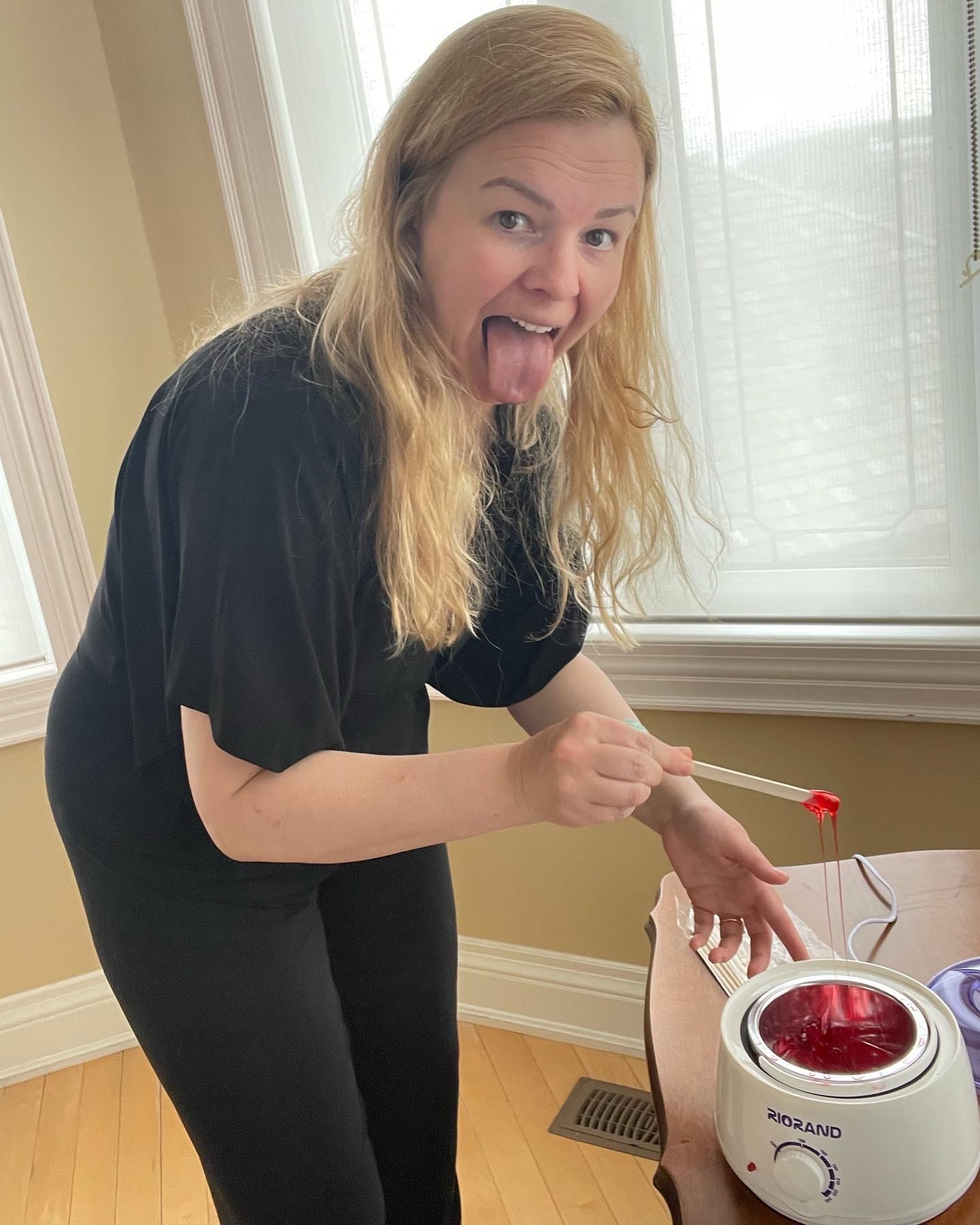
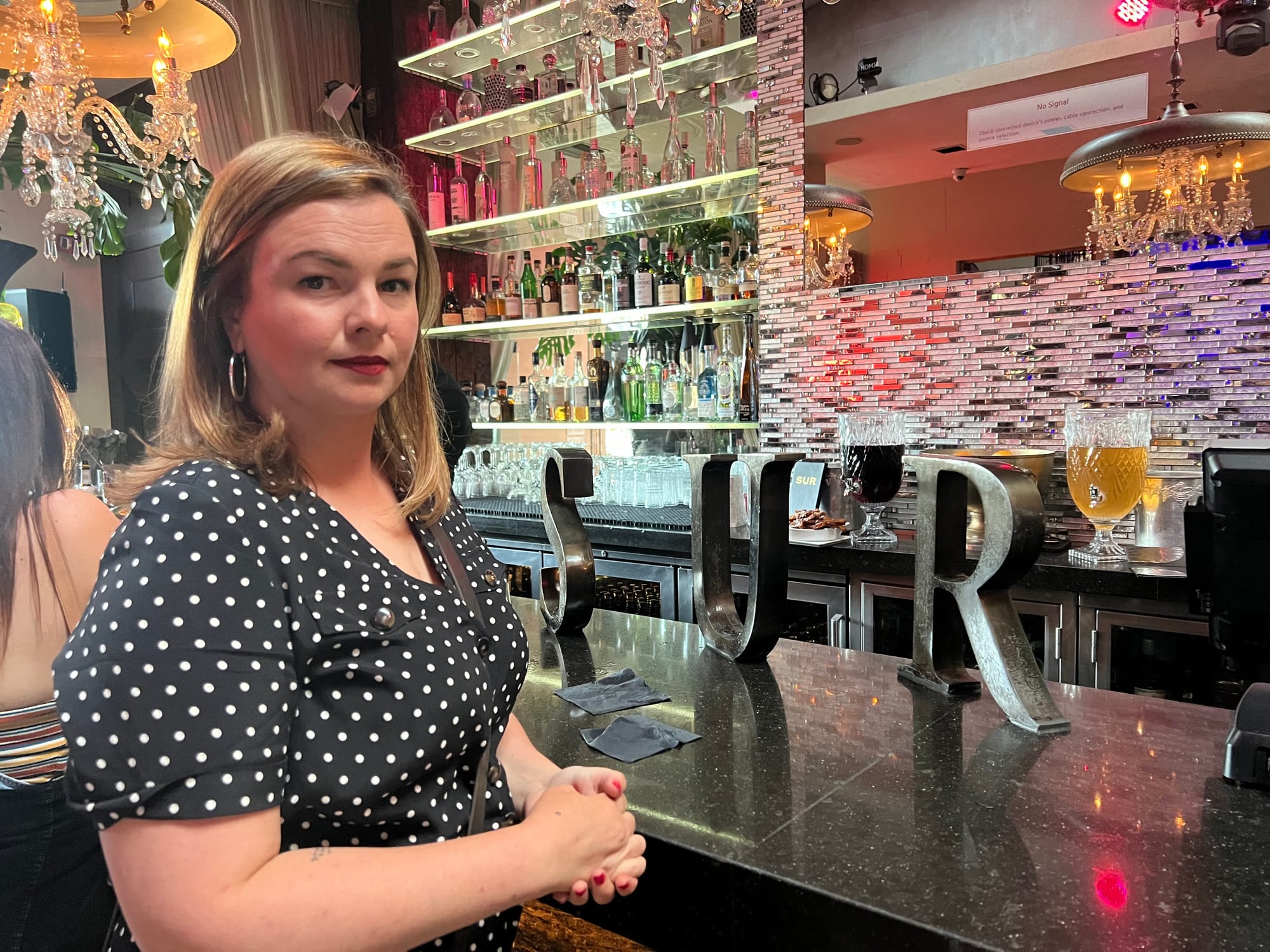
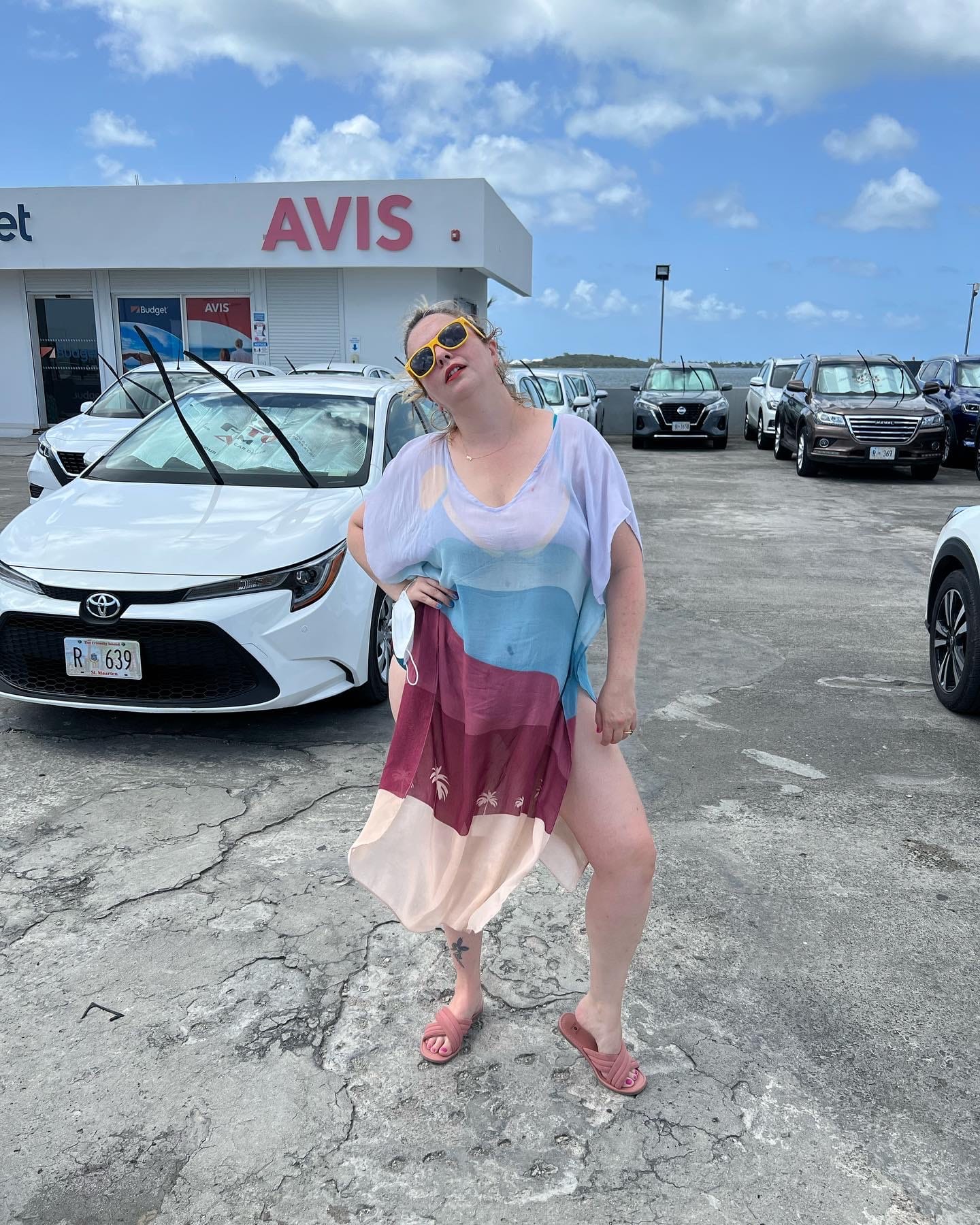
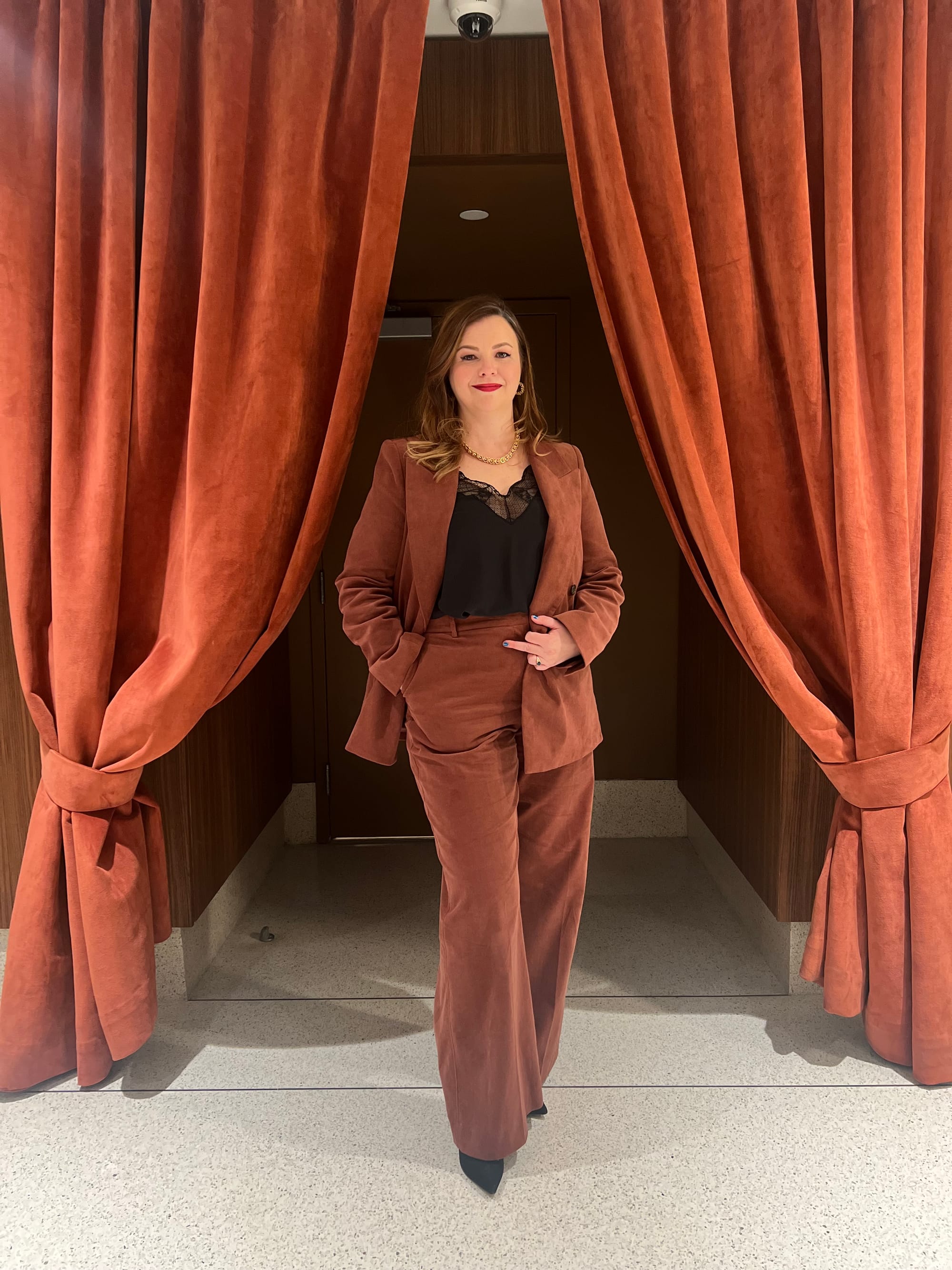
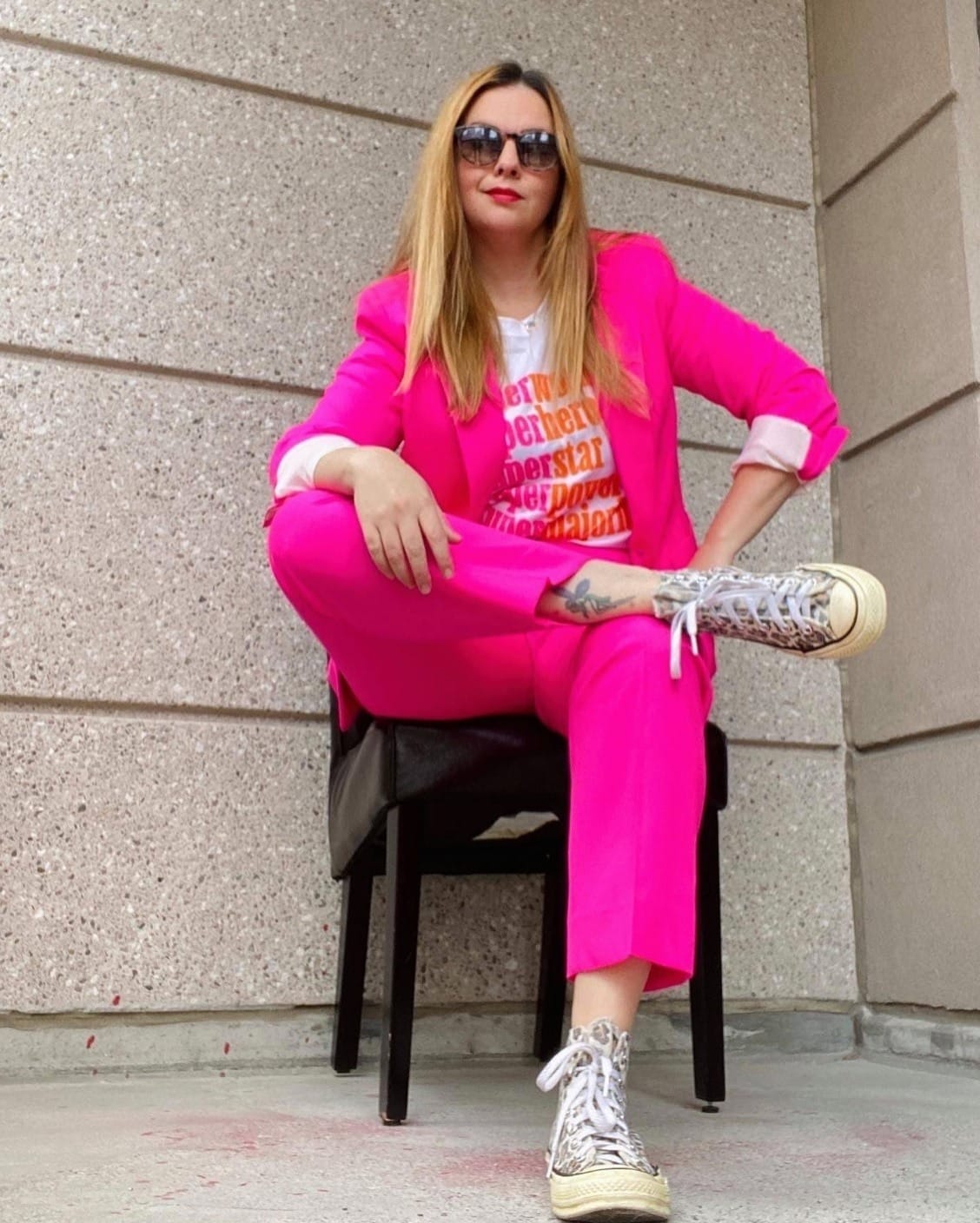
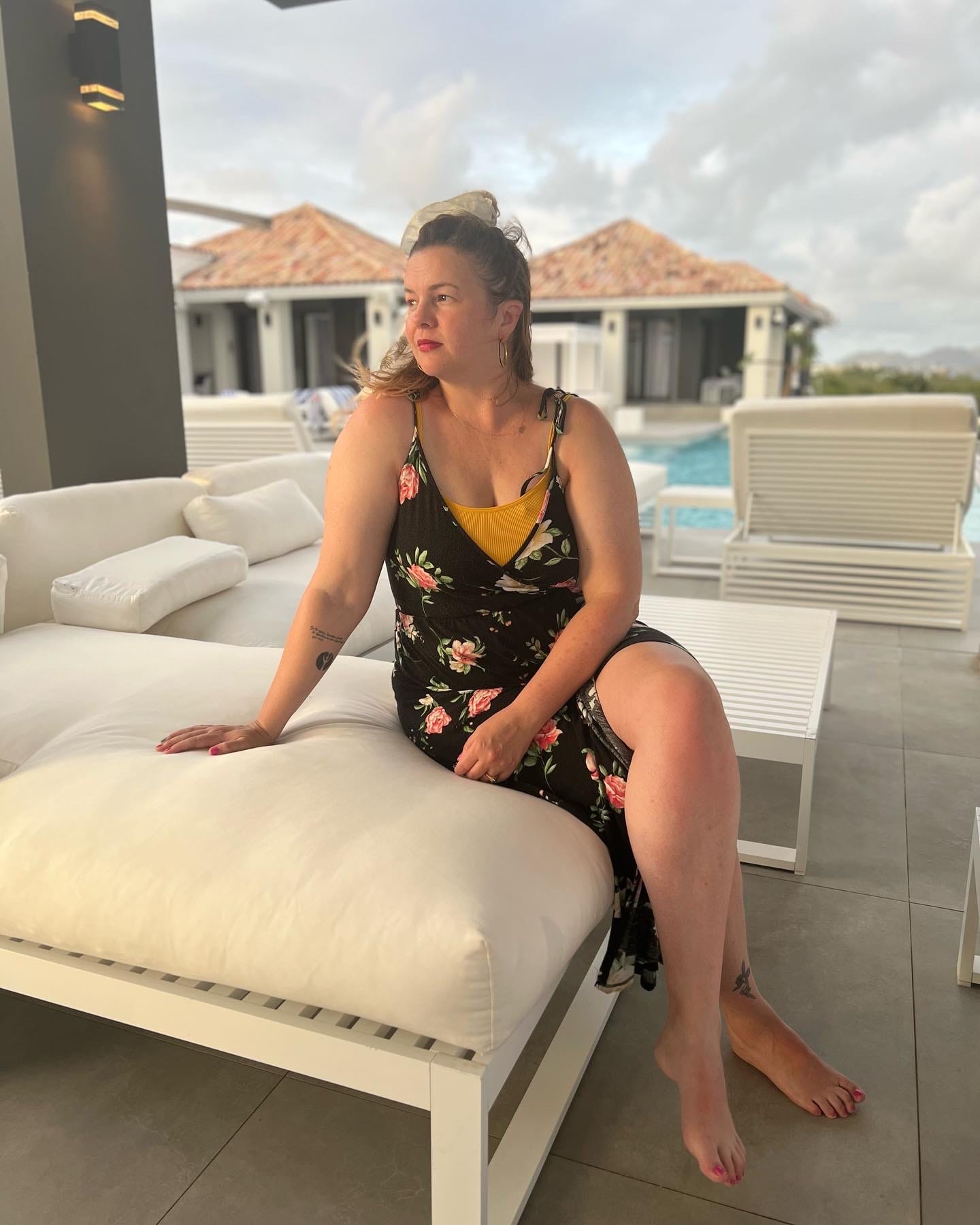
Speaking of hot. (Side note: I let Amber wax my eyebrows during Covid, and honestly, she did a pretty good job).
Eliza: Aces in the Tarot are all about beginnings. What makes a good beginning?
Amber: I have too much to say.
Eliza: Any Man has one of the best beginnings of all time.
Amber: Any Man is a great opening for sure. It's just two lines on two separate pages. The first page says, “Am I in a body?,” and then the next page says, “No body answers.” That's poetry’s influence; conveying a feeling in that way, in the briefest of words. The strongest poems sneak up on you with immediacy that way. It's a weird sensation where you are reading a line, whether that's where the line break is, or whether that's just like where the end of the sentence is. And you think you're reading one thing. And then suddenly, its intention has made a hard right and taken you somewhere completely unexpected and thrilling, or gut-wrenching, made you feel something you were not expecting to at all. The poet Derrick C. Brown says something like: A single line of good poetry can do for you what an entire good book of any other genre cannot.
Beginnings are super important. I knew that this new thing that I was working on was going to be a novel because I had an opening chapter in my head, a thing that happens that's really strong, and sets up a really interesting, inciting incident. Right now, the book is in that really scary, delicate, super early stage, almost like when you've just fallen in love with someone, and you very much want to talk about it, but you’re also like: I must protect this till my dying breath.
Eliza: That's very Ace of Cups energy, that idea of falling in love with the nascent idea, something you have to sort of whisper to and feed, and treat with very careful little gloves.
Amber: It's something I've been wanting to happen to me for the last year and a half, but I couldn't force it. I had some ideas, but I was waiting to sort of fall in love with the project again. I wasn't sure it was going to be this. And then, once all these puzzle pieces clicked into place, I was like, Oh, I'm in it. I’m in it now.
Eliza: A writer's life is about collecting ideas, characters, dialogue, situations, and storing them somewhere in your brain, and rock tumbling them a little bit until something pops out.
Amber: Do you keep like an ideas journal?
Eliza: Sort of? You should see the notes app on my phone, which is just unhinged. Sometimes I wake up in the middle of the night to write down an idea, and then, especially if I've taken an edible, I'll wake up and be like, what the fuck is this? What does this even mean?
Amber: I wish I was organized. Janet Fitch came over to my house recently, and she had this notebook. It was the most beautiful little notebook, and it had like drawings and notes, and I was like God, you are the dream writer…
Eliza: An archetypal writer.
Amber: Quintessential writer. That’s what I should be doing. Meanwhile I've done myself the disservice of writing in 19 different journals at the same time in which I have like 85 different ideas.
Eliza: I have 70 million notebooks going at one time.
Amber: That's what I'm saying. That's what I do. It's not a good idea.
Eliza: So we just talked about beginnings. When do you know when something's done?
Amber: Hmm. Great question. I mean, I’ve spent many years relying on and learning from some of the greatest writers I know and love, and asking for their thoughts. For many years, I would be in writing groups with fellow poets and peers: Derrick Brown, Mindy Nettifee, Rachel McKibbens, Jennifer L. Knox, Ada Limón, to name a few. When we were a lot younger we would give a lot more feedback to each other’s work... Often poets and other writers are the first ones, especially with poetry, to say, You've actually written too much. The poem stops right here. Every single time they're right.
Eliza: Generally, anything you can cut out makes it better.
Amber: That's true. I say that to people who ask me to read their scripts, whether that's to produce it, or to star in it, or direct it, or just because they want some feedback.. If they send me a 120 page script, I'm like, cut out 30 pages and I will read the script.
Eliza: You sound like my agent.
Amber: A 90 to 95 page script will still leave 5-10% of those pages on the cutting room floor during the editing phase. In filmmaking you have to leave a little bit of space, and you certainly have to in poetry or fiction. You have to leave a little bit of space for the unknown, for Brittany’s ghost to do her thing, as it were, to see the ways in which the ghost wants to haunt you. In my film, Paint It Black, the movie I wrote and directed, I left a little bit of room at the end of each day to shoot some weird shit. One day we had an extra forty-five min at the end of the day. And Janet McTeer had just finished the last scene of the day. So I said, Okay, Janet, let's put on that silk robe that we're not using for anything else, and I'm gonna get on a long lens. I'm just gonna shoot you at the very end of the hall this long, dark hallway with a taxadermy polar bear, and I just want you to be drunk, talking to yourself there, alone... You’ve lost a ring. It fell under the couch. But you’re too drunk to find it. And you try anyway. What resulted was one of the most emotionally visceral moments in the film, and it wasn’t scripted.. This woman has lost her son, she’s so lonely, so isolated and and doesn't know how to be kind to anyone in her grief. And there she is, crawling on all fours, spilling her drink, talking to a taxidermy polar bear. It was devastating. We shot several moments like that that were not in the script, that were not scheduled to be shot. So cut the fat in your scripts. Kill your darlings, and then kill their siblings, too. Leave some space for divine magic to happen; for the ghost to enter the room and sit down with you.
The trailer of Amber's film, Paint it Black.
Eliza: I'm so thrilled by how perfectly you are embodying the ace of cups in this conversation. I like the impulsivity of I'm gonna leave space for this. And then letting the moment decide what's gonna fill that space, It sounds like you really trust yourself as an artist.
Amber: I think I do. You like that I put “I think” in front of that?
Eliza: You and I share this weird upbringing of having been professional children. You were obviously more successful as a professional child than I was, but it’s a weird thing to grow up in. For me, sometimes at least, I feel like I’m on the outside of myself looking in. At the same time, it does teach you a level of confidence and self possession. It’s a weird combination — a real sense that you know what you’re doing, that you’re a professional and you have the tools for this, while at the same time feeling like, But tell me I'm good, Business Daddy!
Amber: Business Daddy! When I sent you the script for the potential TV show that I was trying to make —
Eliza: Which was amazing, by the way.
Amber: I admire you in so many ways, as a creative person, as a writer, as a world builder, as someone who can whip something out of thin air which is just so fucking hard. It's really hard to describe to people how hard it is to do that. But then, also, as a really good boss. I really needed you to like that script. I really needed you to like it and see me and be like, She’s amazing.
Eliza: I really did like it! And you are amazing!
Amber: Going forward you will definitely be one of the first people that I send some chapters of this book to. What are the people that I love and admire the most, who’s work I love and admire the most, what are they going to see that I don’t see? You know I loved doing test screenings for Paint It Black, which sounds like a nightmare to most people. But I was like give me all the bad feedback, I want to hear all of it. I think we did something like 10 or 12 feedback screenings.
Eliza: Did the film change a lot because of the feedback?
Amber: I would say definitely, a good amount. The editing process is the most fun. That's where you really discover what you're making.
Eliza: Editing is absolutely another writing process.
Amber: I just loved hearing what different people thought, whether that was my agent or Questlove. At that time Ahmir, Questlove, had not directed a documentary yet, and I just was like, I wonder what he’ll think—
Eliza: I love that you just name dropped that Questlove was at your test screening. I’ve also met Questlove, because I'm friends with Amber, no big deal. Now go on, keep going.
Amber: I’m just saying that it was putting different people with many different perspectives in a room.
Eliza: I’m just teasing you. If I could get Questlove to come to my test screenings, I would. So you don’t mind the feedback?
Amber: I love it. Cause I also know that I will take what feels right to me, and then the other stuff, I won't. I'm not gonna get talked into doing something that doesn't feel right for the project. But I do like feedback, even if it’s really hard to hear. I like it a lot. That could be the poet in me, and all those years of sharpen that particular kind of blade.
Eliza: That's a balance that is hard for some people to strike. Maybe that’s actually something that's pretty good about our, you know, shared external validation and inner compass thing. I do know at what point to say, no, thank you. I wouldn't say that I enjoy notes, but I would say that everything always gets better because of them.
Amber: Right.
Eliza: Being told what I've done wrong? I don't enjoy that. I mostly want people to be like, Wow! This is the best thing I've ever read! I've never seen anything better than this! Anything outside of that in terms of feedback, I have to check my ego and address my expectations.
Amber: Well, television seems very different and so much harder in so many ways. If I had been in your shoes, in the position that you were in… it’s weekly. You're churning out art. And to churn out art is very, very, very hard to do and also make it good and meaningful. To do it on a weekly basis seems so incredibly difficult. So those notes are feeding a different kind of beast. That's gotta be very difficult.
Eliza: It's definitely hard to have a career television and only work when the spirit moves you. That's been really hard for me to learn, because procrastination is a huge part of my process. But that is also why television is collaborative. If you can get your ego out of the way, and instead of hiring people that are yes-men, you hire people who are better than you or who you look up to, then they can step in when your well is dry. TV is a team effort.
Amber: I got to see that when you very lovingly let me shadow couple of the directors for Y: The Last Man. I got to see, not the writing process, but just how you bring something to life which even with 25 years of acting on TV, I’ve only ever seen so much of that process. That was such a profound experience to see the way something wasn't gonna work, or you lost a location or something was gonna be over budget, whatever it was. And then you and Katie [Edgerton, one of the writers who helped me produce the series and without whom nothing could have happened] would have to go and say, Well, we're gonna make it work. We're gonna fix it and change it. And that was also with borders closed, with impossibilities that are hard to describe. It was so intense.
Eliza: Thank God we had each other and all of that tequila.
Amber: I do miss it. Not so much the tequila, but the sense of being on a desert island with you, trapped in our misery and creativity.
Eliza: I miss it too! Can you tell me about a moment of creative triumph? A moment where you thought, “Wow, I’ve really done something here.”
Amber: Well, I think having this poem in the New Yorker feels pretty—
Eliza: Pretty fucking cool.
Amber: Pretty triumphant. There was a hesitation when I submitted it to Kevin Young, the poetry editor there. In my note to him, I think I said, this might be way too long, but I just thought it might resonate with you. It's a long poem, I mean, it's two full pages. So I think also there was just this feeling of like I should just have like a little short poem that's in the corner, like I don't deserve two full pages of the New Yorker. But then I saw it, and I was like, Oh, yeah, I do.
Eliza: Fuck yeah, you do.
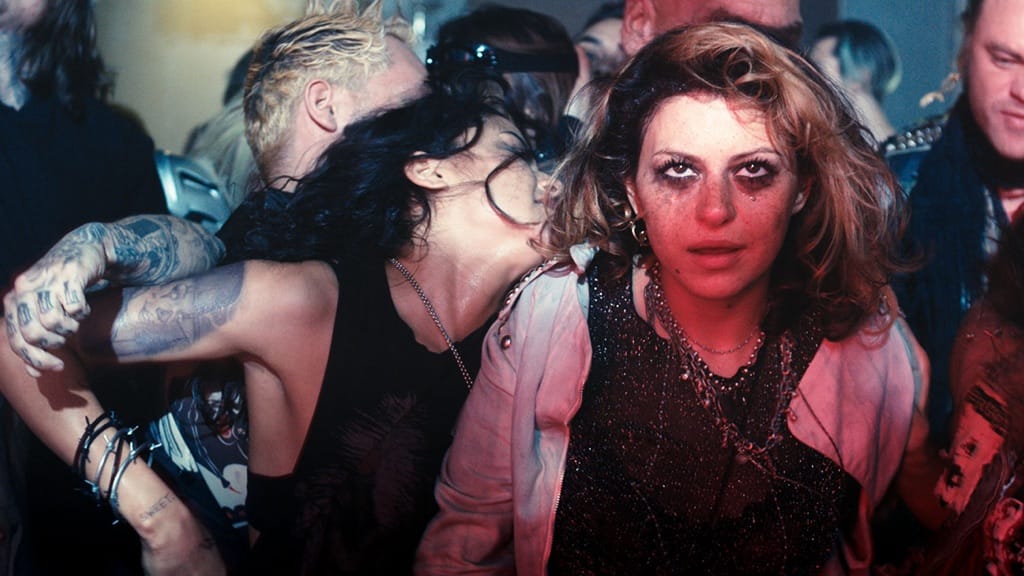
Amber: That was pretty triumphant. And directing Paint It Black. Co-writing it and directing it against all odds at a time that pre-dated the 2017 Me Too movement and pre-dated this drive to have more women directors. Things have definitely changed. The world has opened up more to women in positions of power. I can share this, because I think I have talked about it publicly. The director, Courtney Hunt, who directed Frozen River, was interested in directing Paint It Black. We had several meetings, and she was like, I want this fight to be gritty, knock down drag out between these two women, and I very much had a different opinion. After a few meetings she said to me, sitting in Wren Arthur, the producer’s office, she was like Amber. I think you need to face the fact that you're the one that needs to direct this movie. It was very surprising, you know. And then Wren agreed. And later Wren told me, Listen, there's gonna be a lot of people that are going to say, this is a bad idea. But this is my job. I will protect you. It was really incredible to have someone in my corner who was like, you've never directed anything, not a short film, but like that's a day in the life of a man, and so I don't know why you shouldn't be able to do that with all the experience that you do have. And then even just trying to get it sold… it had 96% on rotten tomatoes. It had the most incredible reviews. And still, people could not see me for me, for what I had gone and accomplished, despite the odds against me as a woman.I remember the heads of Sundance at that time told us how moved they were by the film, but that they had already filled the slot for an actress turned writer-director with Clea Duvall's film.
Eliza: I'm sorry, wait... What?
Amber: I shit you not. Verbatim. They said that out loud.
Eliza: Oof.
Amber: But you know, this was back in 2015, back before 2017’s MeToo movement which opened the conversation and the door for so many women to get behind the camera, and for the industry to want that, too. I can’t even imagine the hurdles women who came before me had to jump over to get their films made. I grew up constantly hearing I needed to manage my expectations as an artist. In the business’ eyes, I was an actress, and that was all I was allowed to be. But in poetry’s eyes, I could be whatever I wanted to be; a genre-shifter, a filmmaker, a curious student of storytelling.
Eliza: Huge triumph. Can you tell me about a moment of creative disappointment or grief?
Amber: There's a lot of them. I'm trying to pick one.
Eliza: As you know, Y ending felt like a death to me, and I was also really embarrassed by that, because you and I have been a part of this business for our entire lives, and I'm usually good at managing my expectations. I'm just curious about how other people cope with this kind of grief. Art can feel so personal, it can feel like your identity is wrapped up in the thing, like you personally are being rejected. It brings up a lot of emotions.
Amber: There have been a few movies that I acted in that we're very important to me that had very painful endings. One of them was this movie, Stephanie Daily, that I did with Tilda Swinton. Another one was written by Beth Shacter, called Normal Adolescent Behavior. It’s a brilliant script about polyamorous college kids— about young women who were fiercely sexually liberated. I was 23, I think, when I did that movie, I'm 41 now. Stephanie Daily went to Sundance. That movie was very successful in the film festival circuit, but then it was impossible to sell. It was about a young woman who has a baby in a bathroom stall and says she wasn't pregnant, and the psychologist who's hired by the prosecution to determine whether or not she could have known she was pregnant. That woman is played by Tilda Swinton, and her character is 8 and a half months pregnant and has had multiple miscarriages. The film is really a dual conversation between these two women and their relationships to pregnancy/their own bodies: one who is not in her body at all, and the other one who is way too much in her body. It's a brilliant, really, really great film, as is Normal Adolescent Behavior. Both of these films had a really difficult time finding homes in the world. Normal Adolescent Behavior had a brutal time. NewLine bought it and renamed it something I never would have agreed to, and put a picture of me on the cover in my underwear from a scene in the movie. They retitled it as a sequel to a bad Anne Hathaway film called Havoc, so our film was called Havoc 2. I was sick to my stomach about it, and remember lawyers got involved, and I ended up writing Toby Emerick a personal letter, trying to appeal to him as a filmmaker, not an executive, pleading with him not to do this, and certainly not to do this with my body on the poster.
Eliza: What the fuck? That’s awful.
Amber: It really fucked me up for a while. Toby sort of met me halfway, and took the image of me in my underwear off the poster, and instead of calling it Havoc 2: Unrated, they titled it Havoc 2: Normal Adolescent Behavior. Stephanie Daily had a very brief theater run, and then it was sold to Lifetime. They cut out the best parts of it, and renamed it What She Knew.
Eliza: Oh, no!
Amber: Both of those circumstances were like, oh, I'm a name actress. These companies bought these movies, not because they love the movies. They wanted Joan from Joan of Arcadia and Tibby from Sisterhood of the Traveling Pants. They wanted to take my work and my name and my body and do whatever they wanted to with it— turn it into something else.
Eliza: If that doesn't make you a full time writer instead of an actress, I don't know what does.
Amber: It was pretty brutal, but you know what came from that? I brought that up to speak to creating art from disappointment. Those two experiences were a last straw for me, as far as having no agency in the work that I was doing. At that point, I had published two books of poetry. I was a published writer, so it wasn’t out of the blue, but it was the end of this chapter of my life where I couldn’t control the outcome of the work I was creating. And that's when I started to become obsessed with Brittany Murphy and dead actresses. I studied them, and it became, head to tail, a seven year project researching these women. I'm going to say this, and try to be as clear as possible, so it's not misunderstood: It was a moment when I needed my own life to end, and I don't mean that in a bad way. I don't mean my literal life, I mean, like the ceasing of that life as it was. I was in deep. It became apparent to me that, I needed, in a ritualistic way, to end this former part of me, the one who was attached to the child actress, the one who could have these types of things happen to her, the one who had three restraining orders against people before she was 21 years old. That part needed to end, fully. Not just like, I'm not that anymore. It's like I wanted to give her a big, beautiful existential burial service, and say, Here is what will be born of it. That's what Dark Sparkler turned into: an absolute exorcism of my young life, of the lack of agency, of being an object for hire, and a rebirth as someone who was not going to ask permission anymore.
Eliza: Fuck, yeah.
Amber: Fuck yeah.
Eliza: Did you do any kind of ritual? Besides publishing the poetry.
Amber: I did a lot of drugs, Eli. A lot. Of drugs.
Eliza: Oh!
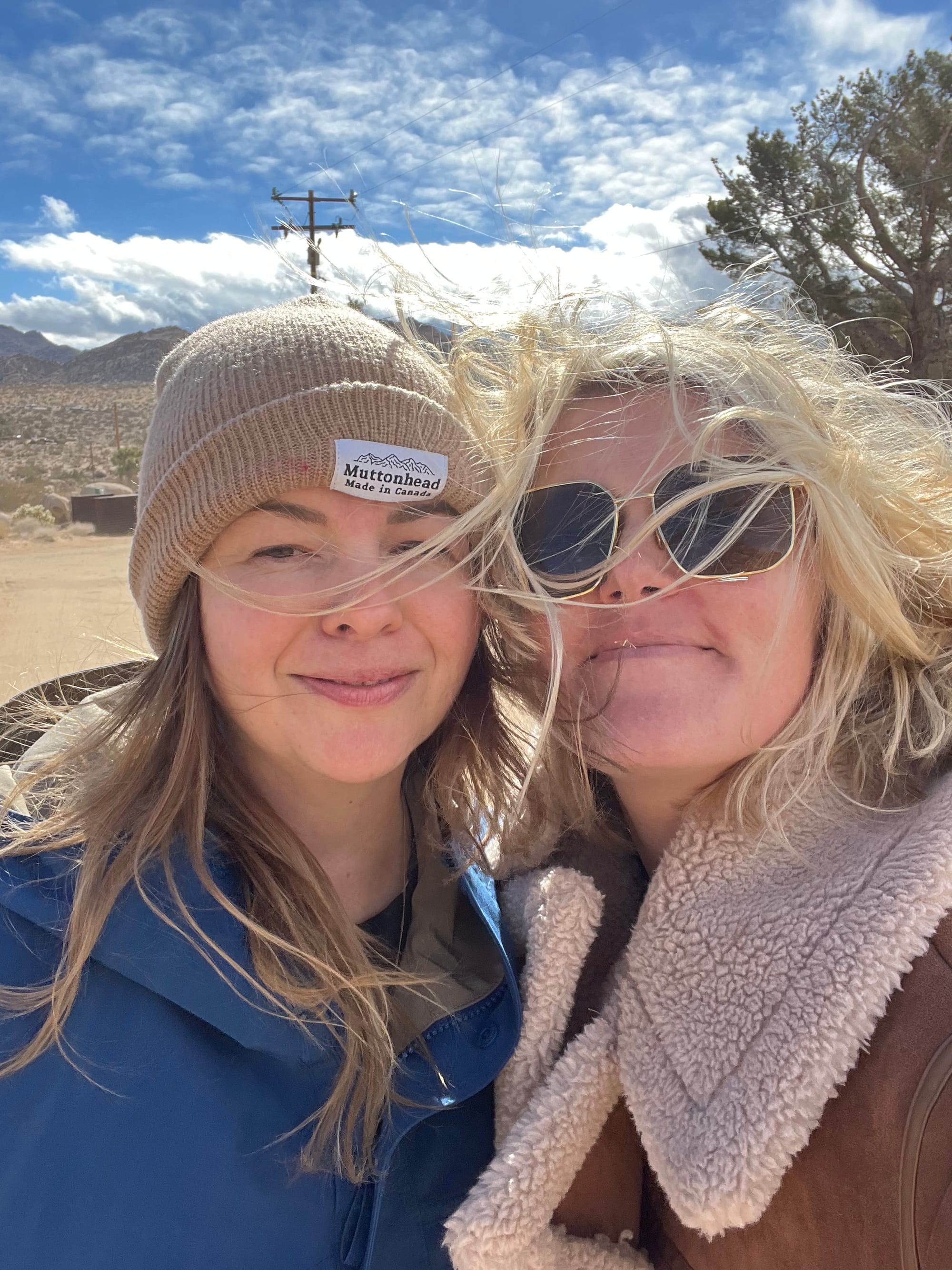
Amber: I was like, it's a great idea! To learn about the lives and deaths of actresses who had drug overdoses, I will do drugs! Only I came to find out that you can't write on a mixed cocktail of pills and drugs and alcohol. You end up sounding like some wannabe Hunter S. Thompson.
Eliza: I like that as research, though. This isn't me, a young actress who likes drugs. This is me, the writer researching.
Amber: Especially taking Xanax, which was so very dangerous. That is a drug I would never touch again under any circumstances. As an actor, you’re using your emotions all the time. You have a heightened empathic relationship to the world, and that is exhausting. Those pills shut it off. It was like a light switch. For the first time in my life, I felt nothing.
Eliza: That must have felt like relief.
Amber: Divine. But then I was like, I can’t do this and write.
Eliza: Cups are all about emotions and relationships. What it's like to tap into those emotions as an actor? I mean, just quickly, before you answer, I'll say that working with you as an actor…
Amber: Was the highlight of your career.
Eliza: It was. You're so talented. It's funny because I met you as an actor, but I think of you as a writer. But you are a brilliant actor. You’re also technically brilliant. Maybe some of that goes back to having been in soap operas? You can memorize 50 fucking pages of dialogue. You know exactly where the camera is always, but then there's so much authenticity and empathy in your performance. I've worked with many actors, and often those two things do not go hand in hand. There are wild, unwieldy actors who are super in touch with their emotions, but who don’t necessarily have any idea where they're supposed to stand or how to repeat a performance, or there are actors who are extremely technical and great, but aren’t necessarily giving a performance that feels raw. Somehow you're able to do both of those things. How?
Amber: I don't know. I've done it from such a young age, but I guess there's plenty of people that also have done that from a young age. I don't know other than I do think part of it is from General Hospital, and needing to have access to big, swinging emotions. But also, I don't know. I wish I had an answer to that one.
A clip of Amber as Kimberly Campbell Cunningham in Y: The Last Man
Eliza: Do you feel like the emotions that you tap into when you are acting are similar or different to the the emotions you can tap into when you're writing?
Amber: I think they're very tied. I’ve been writing, especially poetry, and acting for the same amount of time. I had a poem published when I was 12, which sounds embarrassing.
Eliza: You're a wunderkind.
Amber: Gross! That was only because of my writing mentor, Jack Hirschman, who was the editor of this little magazine that was inside the San Francisco Chronicle at that time called Cups. I bring it up just because I think some people think that I started writing when I was older, but they went hand in hand, they fed each other since I was around 10 years old and one always was informing the other. I definitely get the same feeling in my body when I'm striking the right note, saying lines that feel authentic and surprising to me in the moment, as I do with a line of poetry, or a line of writing, or a piece of writing that surprises me. That sort of comes out of left field. I feel that way about the New Yorker poem. Like I don't know how or when I wrote that, what I was thinking, or what its purpose was. But I know that Britney Murphy was sitting down inside me, right there within me.
Eliza: Channeling.
Amber: It really is kind of like channeling.
Eliza: Is there a theme in your work that you keep coming back to?
Amber: Up until recently, yes. That’s part of the sense of the last couple of years feeling like, Oh, God! Where's the where is that feeling that I had before? The vicious, savage, dangerous, scary writer has morphed into sort of something else, and I'm not quite sure what the something else is yet. I am constantly trying to find a way in to show people a feeling or a desire, a problem or a solution in a different way. Trying to un-numb people to their feelings or the way that they see things, whether that's in the crazy storyline that is Any Man, or whether that was me trying to humanize actresses, to see us, not as objects, pure objects, and sort of humanize that experience with Dark Sparkler. Same thing with Paint It Black. I mean, there’s a a lot of similar themes with all of those works.
Eliza: You like a complicated woman.
Amber: I do like a complicated woman. I like an ugly on the inside and out woman.
Eliza: Speaking of women: what do you think's gonna happen in November?
Amber: I think Biden's gonna win.
Eliza: Fucking hope so.
Amber: It has been a traumatic decade, to say the least. Right now, everyone is like a horse with blinders on, and I don't blame them. I think we're all kind of in denial that these are the two choices for President, but there’s so much more at stake than the Presidency. SO much. I believe people will start to see that voting for Biden is not a vote FOR Biden as much as it’s a vote AGAINST Trump. Every historian, journalist, and national security expert has stated at this point that Trump winning is the end of democracy (lowercase d! Not the party itself, but the value and morals of our country). This cannot be overstated enough. There will be no “next time," next time.
Eliza: Also, all the problems that people have with Biden, that I have with Biden, they just get worse with Trump. We should elect a person who we can continue to hold accountable because he will still be a democratically elected President as opposed to a dictator.
Amber: Exactly. We have to vote for everything else that a Biden presidency will protect. We have to take the man himself out of the equation, for the moment, and cast a vote in his name. We have to. I know this is a lot to ask for some people, in this moment, with inflation as high as it is and a disastrous war in the Middle East. But we have abortion and healthcare access to protect. We have women’s lives and bodies to protect. We have trans kids and LGBTQ communities to protect. My God, we have an entire Earth to protect, climate change has reached a breaking point. The alternative is going to get us all killed; people, the planet, and this entire country.
Eliza: But the alternative is not going to become president because Biden's gonna win, because we're all gonna do our part.
Amber: That's the hope.
Eliza: I love you immensely.
Amber: I love you immensely.
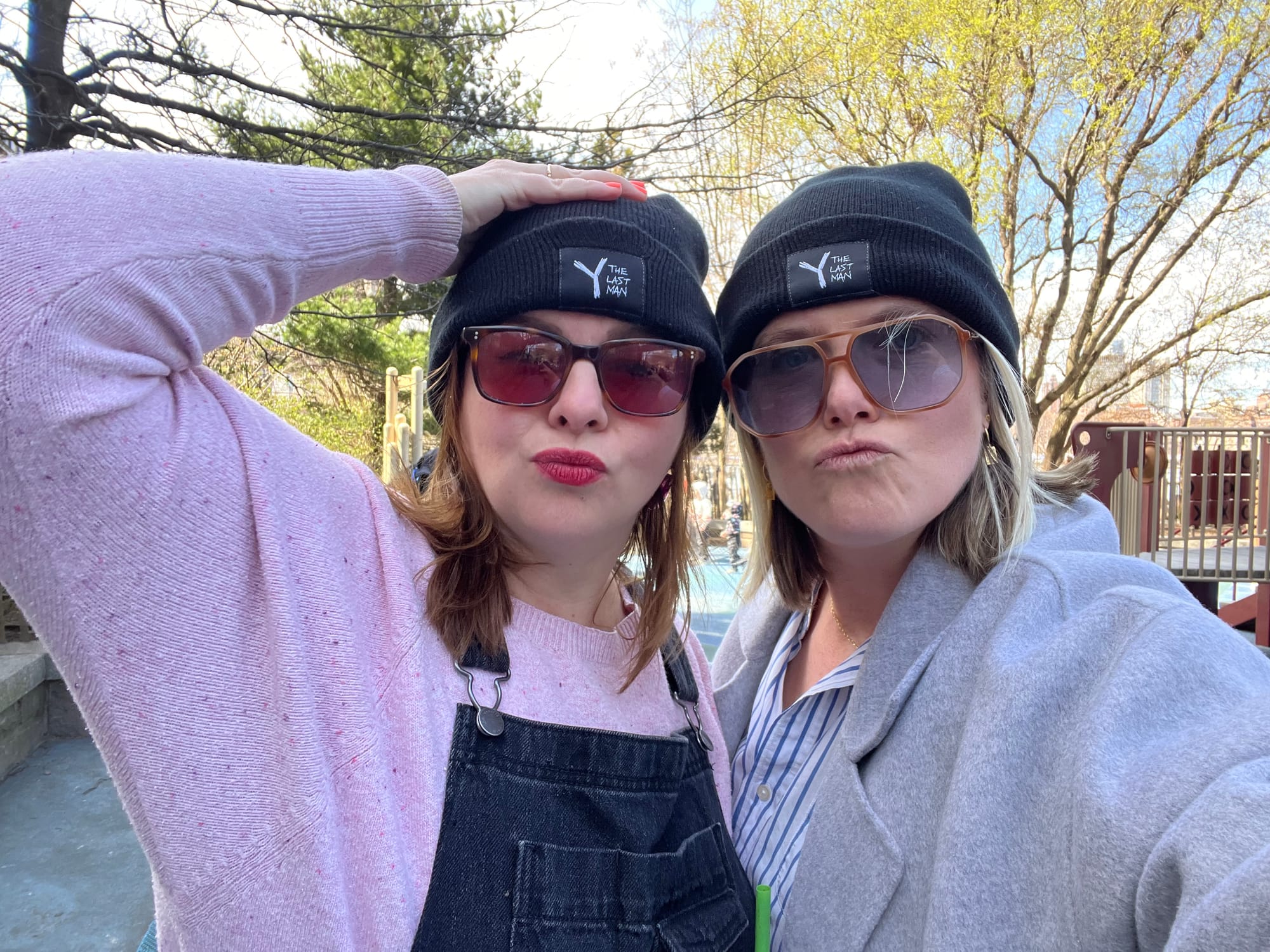
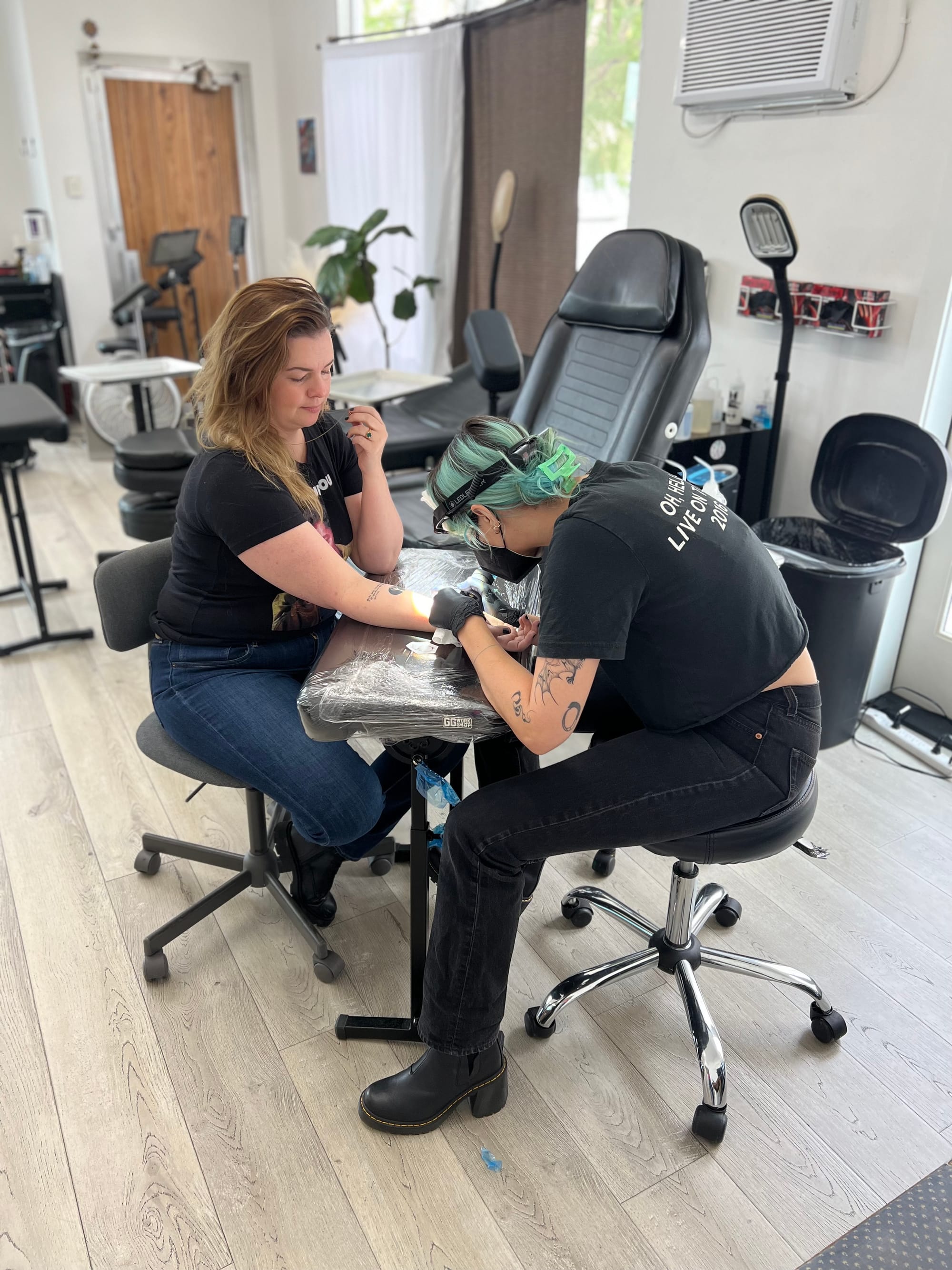
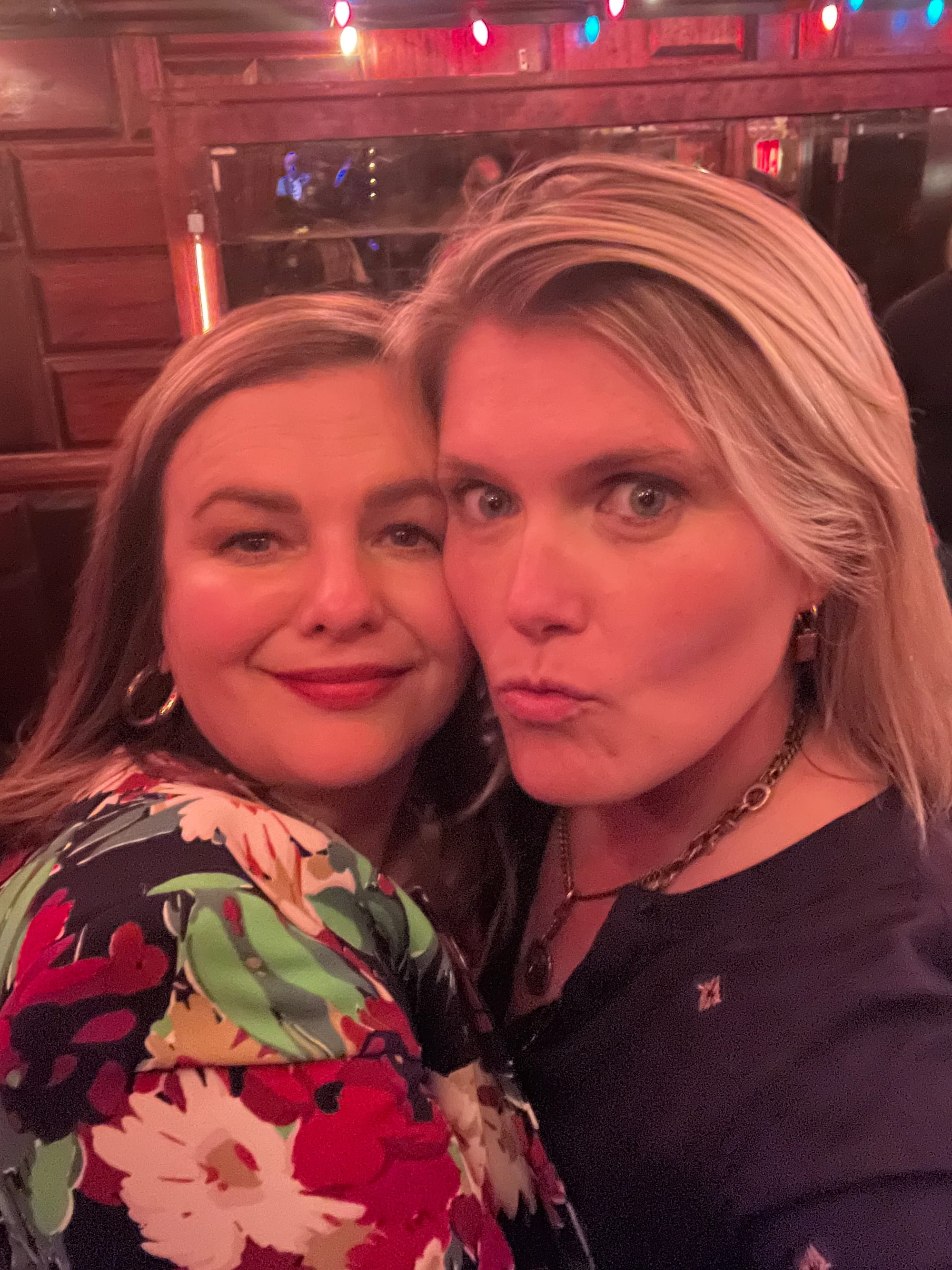
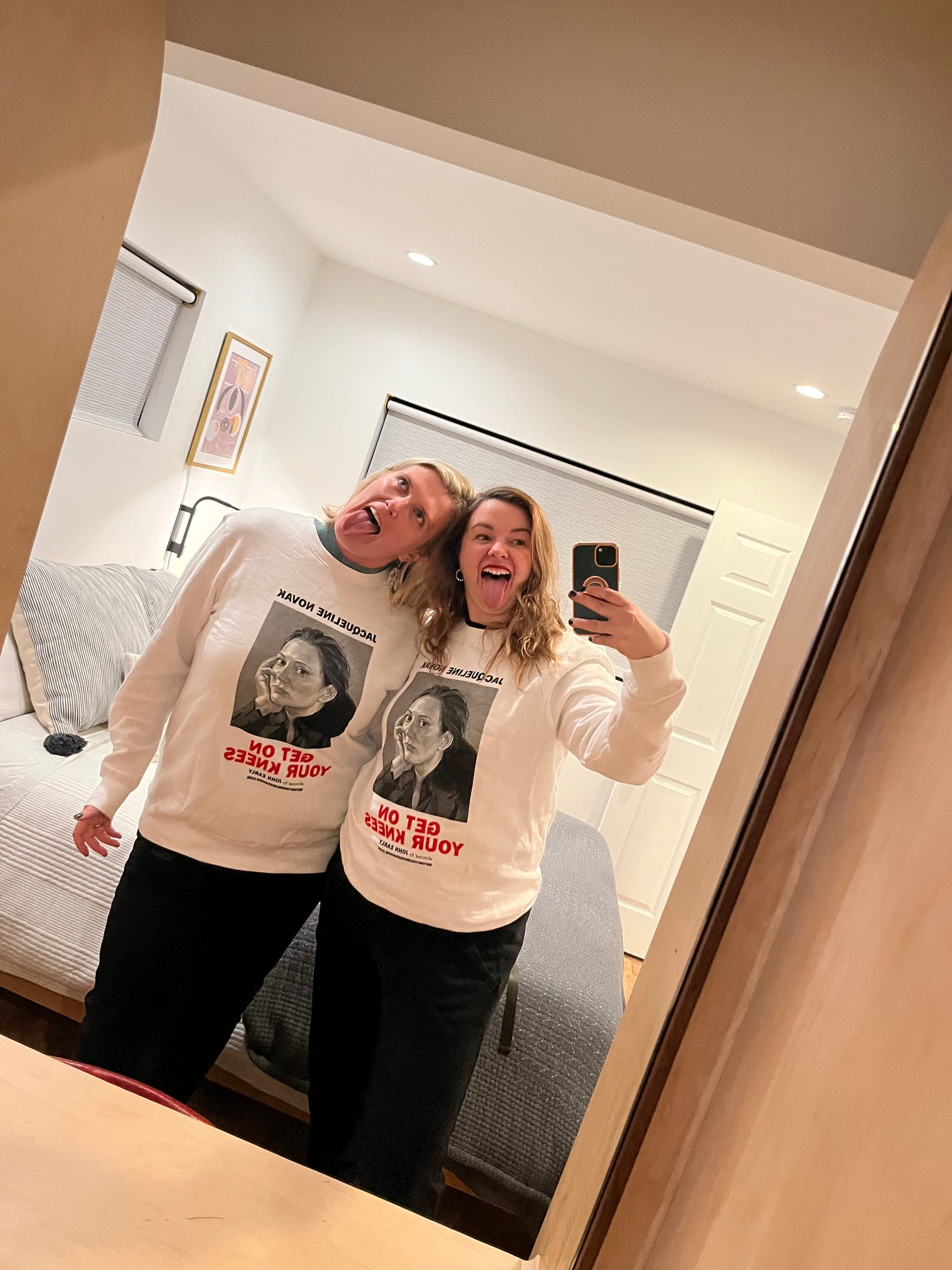
Me and Amber three times, plus a picture of Amber getting our matching tattoo.
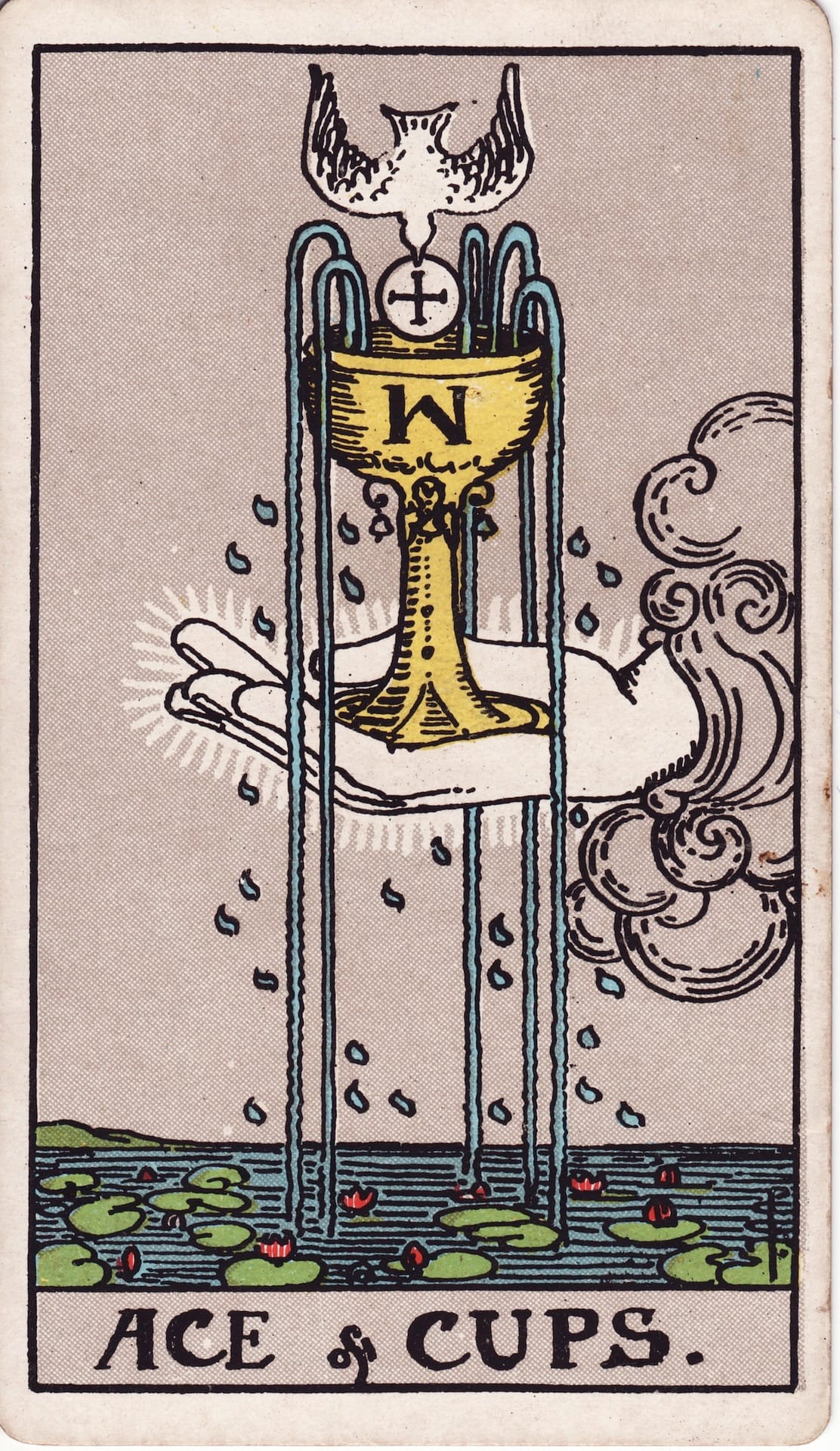
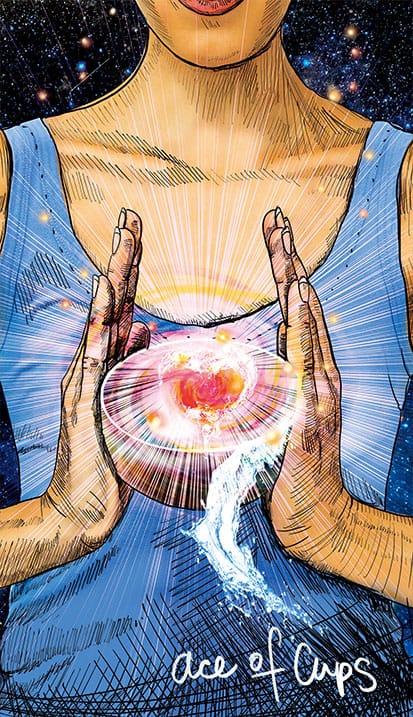
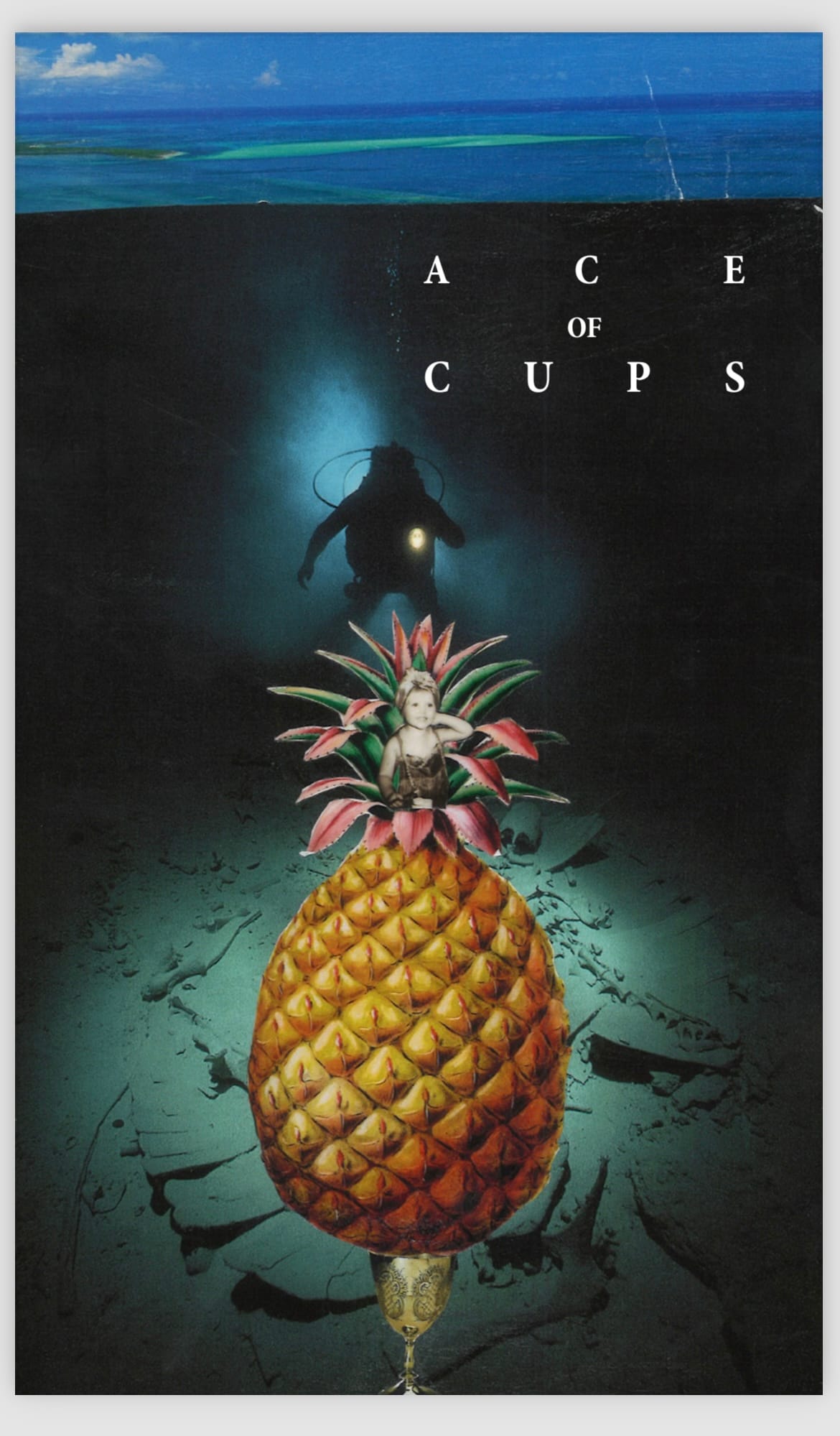
Recommendations!
If you enjoyed this conversation, Amber and I have done a few of these over on her incredible Substack, Listening in the Dark. You can read/watch them here and here. And if you want to read about the time she and I did mushrooms in Joshua Tree together, you can read that here.
I highly recommend taking a deep dive into Amber's oeuvre. She's a prolific and brilliant writer and all of these works of art are phenomenal!
Poetry:
Free Stallion
Dark Sparkler
Bang Ditto
The Punishment Gift
Books:
Any Man
Era of Ignition: Coming of Age in A Time of Rage and Revolution
Listening in the Dark: Women Reclaiming the Power of Intuition
Film:
Paint It Black
